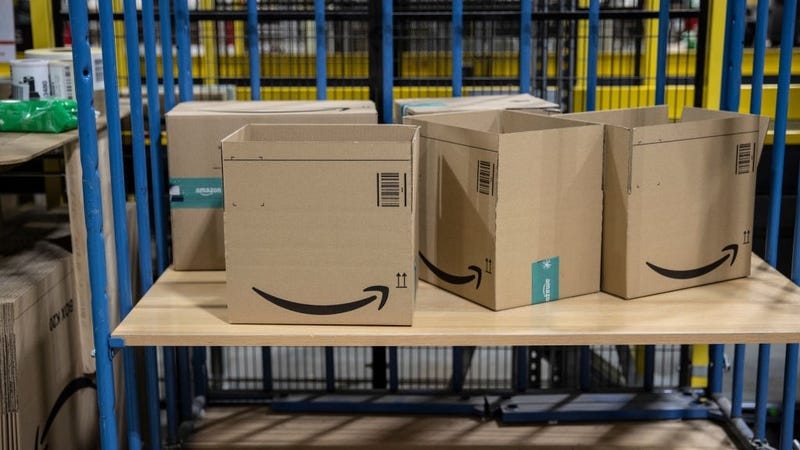
Following the U.S. Bureau of Labor Statistics recent Consumer Price Index Summary published on Tuesday that showed inflation has reached 8.5% over the last 12 months, Amazon announced on Wednesday that it will charge sellers a 5% fuel and inflation fee.
The new fee, which is a first in Amazon's history, is scheduled to begin on April 28, according to documents obtained by Bloomberg.
"In 2022, we expected a return to normalcy as Covid-19 restrictions around the world eased, but fuel and inflation have presented further challenges," Amazon wrote in a memo, provided to CNN. "It is unclear if these inflationary costs will go up or down, or for how long they will persist."
The fee will apply to those sellers that use Amazon's fulfillment services, which stores, packs, and ships products, according to Bloomberg.
"Like many, we have experienced significant cost increases and absorbed them, wherever possible, to reduce the impact on our selling partners," Amazon said. "When we did increase fees, we were focused on addressing permanent costs and ensuring our fees were competitive with those charged by other service providers."
According to Amazon's fourth quarter results that were published on Feb. 3, the company reported $469.8 billion in revenue and a net income of $33.4 billion.
Amazon is not the first company to add fuel surcharges, as Uber and Lyft did so last month, while shipping competitors like FedEx and UPS have increased prices based on the type of package.
The CPI Summary for March showed that the gasoline index rose 18.3%, while the current national average for gas is $4.07 per gallon, according to AAA. The average last month sat at around $4.325 per gallon for regular gas.
Stacy Mitchell, co-director for the anti-monopoly group Institute for Local Self-Reliance, spoke to CBS News about Amazon's decision to hike their fees, adding that it will a challenge for sellers going forward.
"Amazon keeps increasing its fees on the sellers that have to depend on its platform," Mitchell said. She added that the new fees are just "to take more money out of the pockets of independent businesses and put it into Amazon's coffers."


